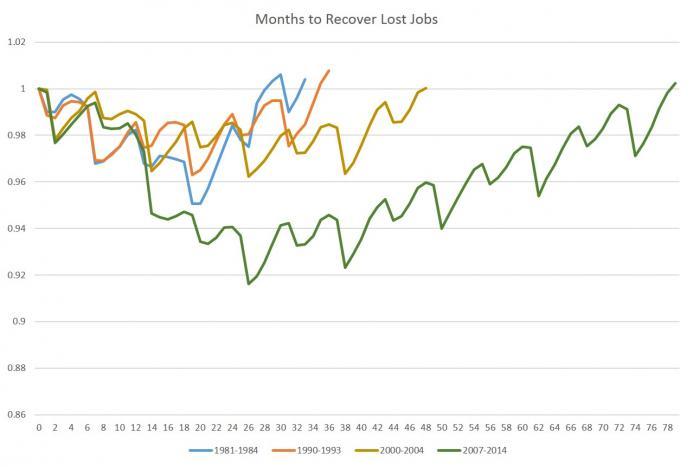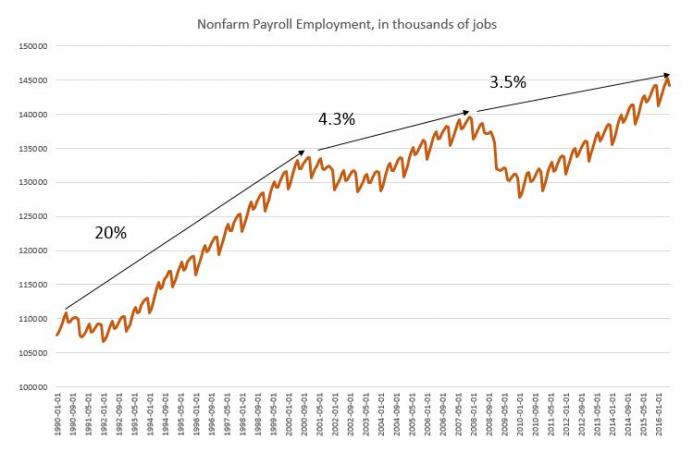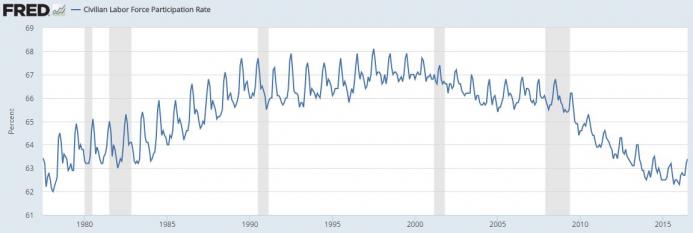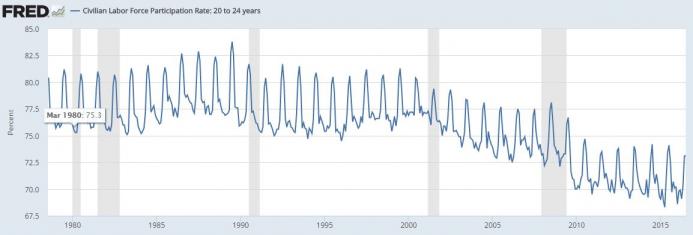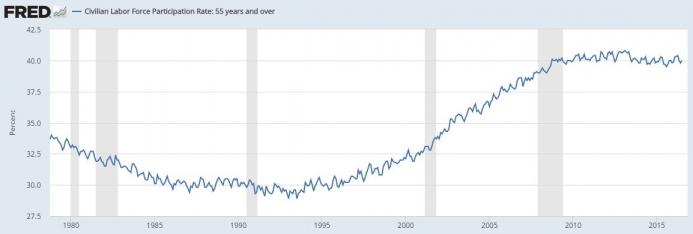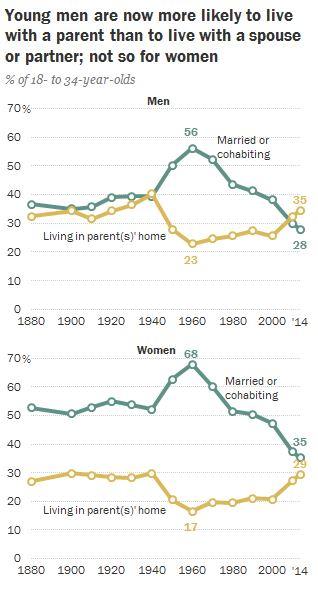Here, I continue my exchange with Dr. Charles Steele regarding the 2012 U.S. Presidential election and the question of whether either Barack Obama or Mitt Romney have any merit as candidates or whether one can be preferred to the other. In “The Imperative of Libertarian Rejection of the Two-Party Trap”, I addressed the question of whether it can be morally legitimate to vote for a lesser evil, and concluded that it is not – particularly where a fundamentally dishonest and deceptive ticket such as Romney/Ryan is concerned. (Readers can also see the aforementioned article for a list of links to the previous installments of this exchange.) Here, I respond to Part 2 of Dr. Steele’s previous response: “Romney v. Obama: Tweedledum and Tweedledee?”.
I will first say that I have no intention of defending Barack Obama or claiming that his second term would not be “as bad” as Dr. Steele portrays. Barack Obama has, in many ways, been responsible for a massive growth of the American police and surveillance state, as well as an expansion of militaristic interventionism abroad. His economic policies have, likewise, been highly damaging to liberty and prosperity alike. Drone attacks on innocents, molestation at the airports, an escalating War on Drugs, persecution of whistleblowers, attempts to conflate Wikileaks with crime and terrorism, health-insurance mandates, bailouts and subsidies to political cronies, inflationary monetary policy, reckless deficit-spending fiscal policy, support for draconian “cybersecurity” legislation that would fundamentally curtail Internet freedom and subject billions of individual communications to monitoring by error-prone algorithms, continuing maintenance of CIA torture facilities (a.k.a. “black sites”) abroad, and the “audacity” to insists that the President of the United States has the authority to assassinate any American citizen abroad, or indefinitely detain any American citizen in the United States, based on his mere say-so – all that (and more along similar lines!) has been the legacy of Obama’s first term. I have absolutely no intention of defending Obama – except in cases where the accusations against him are simply factually untrue, or where his administration happens to have stumbled upon a decent and reasonable policy.
One important question to ask is, “Why has Mitt Romney not emphasized virtually any of the above tremendous harms of the Obama administration?” At the Free and Equal Third-Party Debate, all four of the participants (Gary Johnson, Jill Stein, Rocky Anderson, and Virgil Goode) had scathing criticisms of Obama’s administration in some (or, in the case of Gary Johnson, most) of the areas mentioned above. Ron Paul’s criticisms of Obama were similarly severe, and similarly on target. The perceptive observer, then, is left to wonder why Mitt Romney’s campaign completely ignores the actual harms caused by Obama during his first term and instead focuses on criticisms that are trivial at best or disingenuous and dishonest at worst. Is it, perhaps, that Romney would himself perpetrate the travesties discussed above, and perhaps intensify them? Is it, perhaps, that Romney’s political base actually insists that he attack Obama for not being “tough” enough with regard to certain military engagements and infringements on civil liberties? (One must remember that Romney himself stated during the Republican debates that he would have signed the indefinite-detention provision of the NDAA. Furthermore, Romney expressed strong support for SOPA and the Protect IP Act before reversing his stance once it became apparent that continued endorsement of these bills would be politically ruinous.)
Rather than defend Obama or contrast him favorably to Romney, I will respond to each of Dr. Steele’s points by following a general theme: that Mitt Romney is cut from the same cloth as Obama policy-wise, and is even worse personality-wise. Obama, for all of his erroneous and dangerous views and actions, at least seems to have an ideological system that he endeavors to realize, however imperfectly and however subject to political maneuvering and backtracking. Romney, on the other hand, seems beholden to no principles. David Javerbaum has aptly characterized Romney as engaging in “quantum politics” – e.g., “Mitt Romney will feel every possible way about an issue until the moment he is asked about it, at which point the many feelings decohere into the single answer most likely to please the asker.”
This, then, can be seen as my response to Dr. Steele’s point regarding the “general vision” of the two candidates. Dr. Steele wrote that “This presidential election is not so much a choice between Mr. Romney and Mr. Obama as it is between two competing visions of the role of government.” I respond that the two parties do not represent competing visions, because the Republicans – by nominating Mitt Romney – have shown that they do not represent any vision whatsoever, or at the very least that their “vision” is a blank to be filled by the expediencies of the day. A left-progressive vision, however erroneous or even dangerous in some respects, is at least relatively predictable – though even many left-progressives (e.g., Rocky Anderson of the Justice Party) are themselves disgusted at the course the Obama administration have taken and strike me as a lot more honest and at least capable of doing good in certain areas (e.g., civil liberties), as compared to either the Democratic or the Republican establishments.
I certainly do not see in Romney/Ryan or the Republican establishment the barest shred of “the view that government is limited by the rights of the individual, and that most of civilization is built by free people acting in the market.” Romney’s incessant ads in Nevada about how he opposes Barack Obama’s “threats” to Social Security and Medicare are a case in point; he is just another establishment campaigner who tells various segments of the electorate what they want to hear, and portrays his rival as a terrible menace. But more importantly, the Republican establishment has shown that it not only cares little for individual rights in theory – but it is ready to trample upon them in practice, through the fraudulent and sometimes violent manner in which supporters of Gary Johnson and Ron Paul were effectively disenfranchised during the nominating process and – at the Republican National Convention – were met with a “rule change” (adopted over the loud objections of the delegates) that will effectively bar grassroots delegate selection in perpetuity. The Republican Party, by preventing even their previously most ardent grassroots supporters from rising to positions of prominence in future elections, has closed itself off from any connection with individuals or the free market. It has become the party of oligarchic elites – the party of crony corporatism and entrenched political favoritism. To be sure, the Republican Party does need its “useful idiots” to mobilize mass fervor against the Democrats and win elections. Hence, the Republican establishment fails to quell xenophobic, theocratic, and racist bigotries (e.g., the oft-repeated claims that Obama is an atheist Muslim who was not born in the United States). Even though the Republican elites are too intelligent to fall for such nonsense themselves, they are too callously manipulative and devoid of principles to discourage sentiments that may be politically useful to them.
Dr. Steele writes that “conservatives are far more skeptical of government than are progressives” – but this refers to a conservative movement that was perhaps of this sort some thirty years ago during the Reagan era (in rhetoric at least), but not at all today. While Dr. Steele asserts that “the Republican Party is the party of skepticism about government”, the Republican Party gave us unprecedented expansions of federal-government power during the George W. Bush era. Indeed, a principal observation regarding the Obama administration’s deleterious effects for liberty is that Obama has built upon the foundation that George W. Bush created, with few material departures. Today’s Republican Party is a mix of neoconservatism, theoconservatism, crony corporatism, and pop-conservatism. Libertarianism is not a material component of the Republican agenda – other than occasional lip service to libertarians during election years – just to get their vote. Every election season, the Republican Party courts libertarians, and every time it has electoral success, it simply discards any pretense at pursuing even a quasi-libertarian agenda. When was the last time that a Republican victory has brought about any policy shifts in a remotely libertarian direction? In the face of such repeated bait-and-switch tactics, how many times does it take to learn not to fall for them again? How many times do good libertarians need to be deceived by entrenched political elites who have no intention of diminishing the scope of their power?
Dr. Steele contrasts the Democratic and Republican platforms, but even the shreds of pro-liberty sentiment in the Republican platform were hard-won from the establishment by the tireless activity of Ron Paul’s supporters on various Republican committees. These friends of liberty were faced with procedural manipulations and threats from the establishment for attempting to introduce pro-liberty platform planks, and it is certainly salutary that they succeeded. But they were able to plant a few saplings of liberty into extremely hostile soil. The Republican establishment will never accept libertarians and will try, at every turn, to undo these hard-won gains. Attempting to accommodate the Republican establishment will turn libertarians into mere tools for specific establishment aims – as exemplified by the case of Rand Paul, who was largely ignored by Romney after achieving the useful (to Romney) goal of splitting the Ron Paul movement by endorsing Romney. Rand Paul was merely given a speech at the Republican National Convention – but that was largely it in terms of his “gains” from the endorsement. The liberty movement certainly did not gain even that much, as no policy victories were won by Rand Paul’s action. Another potential approach, that of overruling the establishment and “taking over” the party, has become close to impossible after the National Convention, and so the only reasonable course of action left to libertarians is to abandon any connection to the Republican Party and act entirely outside of its confines.
On the matter of free speech, Dr. Steele writes about the threat of Jim McGovern’s proposed “People’s Rights Amendment”, which would overturn the Supreme Court’s Citizens United decision. While this proposed amendment is certainly problematic, I do not see a direct connection between it and Barack Obama. Certainly, some high-profile Democrats support it, but that is no guarantee that it would pass or that Obama would endorse it if he received a second term. As an analogy, numerous Republicans have voiced support for overturning the Supreme Court’s Roe v. Wade decision on abortion (including through the means of “right to life” Constitutional amendments – and Republican candidates for President have often endorsed this course of action far more vocally than Obama has ever commented on the Citizens United decision. Yet Republicans elected to office are virtually powerless to do anything about Roe v. Wade, due to the vestiges of the separation of powers that remain. There are dire ways in which free speech is being eroded in the United States, but campaign finance is one of the least concerning areas in this respect. I am far more disturbed by the violent suppression of peaceful political protests (e.g., the pepper-spraying incident at University of California Davis in November 2011, for which the University has now offered to generously compensate the victims), as well as the overarching surveillance state which is emerging due to the domestic “War on Terror”. Internet monitoring of the sort contemplated by CISPA and the National Security Agency’s planned data center in Utah would surely have a chilling effect on free expression online. Likewise, the intimidation and harassment that some of Romney’s supporters have directed at supporters of Ron Paul and Gary Johnson certainly are not helping the cause of free speech. As someone who personally experienced such attacks, I would certainly not trust the attackers’ candidate of choice with safeguarding my rights under the First Amendment.
Dr. Steele is also concerned about the purported Democratic opposition to the right to bear arms under the Second Amendment. Yet the right to bear arms is one area in which liberty has actually made progress over the past decade – and this progress has largely been untouched by Obama during his first term in office. While the Democratic platform may call for some restrictions on gun ownership, even this language is mild compared to the rhetoric of the gun-control movement in the 20th century (particularly prior to the decline of crime rates in the 1990s). Due to Supreme Court decisions such as Heller and concealed-carry laws in various states, widespread gun ownership has been subject to fewer legal restrictions in recent times, coinciding with the continued drop in rates of violent crime. This recognition that liberalization of gun laws did not lead to crime increases, combined with the extreme strength of interest groups such as the National Rifle Association, should keep at bay any attempts to limit Second Amendment rights at the federal level – no matter which party controls the Presidency. The greatest threat to gun-ownership rights remains at the local level, particularly at educational institutions that attempt to impose “gun-free” zones where not even teachers and administrators can bring weapons that could deter potential shooters and immediately disable any who are not deterred.
Regarding PPACA/Obamacare/federal Romneycare, Dr. Steele responds to my argument that Romney would not veto it by stating that “the PPACA is much hated by the Republican base (for that matter the majority of Americans dislike it). A repeal would be extremely popular. It’s simply incredible to think that a President Romney would defy his party and practically 100% of his supporters in order to save Barack Obama’s hallmark program. “ Dr. Steele “can’t imagine anything else he could do that would make him more likely to lose the GOP nomination in 2016.” This assumes, however, that the political base matters to Republicans like Romney to any greater extent than as vessels for whipping up sentiment and winning elections. It is much more likely that the Republican Party strategists will rely on the perceived political amnesia of the masses and will hope that the public in 2016 will have forgotten any promises to repeal PPACA. Romney has already anticipated this behavior and publicly backtracked on his promise to repeal PPACA and stated that there are many portions that he would retain. Most likely, the worst part of PPACA – the individual mandate – which Obama initially opposed but was persuaded by politically powerful health insurers to include, will be among the parts that Romney – being the representative of corporate cronyism that he is – will retain. It is true that Romney might support some partial reforms to PPACA, but if the individual mandate remains, then these reforms would amount to a mere reorientation of PPACA in an even more corporatist direction, rather than a repeal or a movement toward a more free-market outcome. Under Romney, there might be fewer requirements and restrictions regarding the behavior of health insurers – but, in the status quo, those mandates and restrictions largely have the effect of partially (and, in the fashion of Mises’s “dynamic of interventionism”, with severe unintended negative consequences) compensating for the pernicious effects of the individual mandate. A Romney-style amended PPACA might simply enable health insurers to exploit their new captive clientele with few limitations or checks.
Dr. Steele writes that “it’s not clear that Romneycare and Obamacare really are the same thing, despite a similar basic framework. The Massachusetts bill signed by Romney was different from that which was implemented. Romney used his line item veto on a number of the more draconian parts of the bill. The Democratic legislature overrode these vetoes, and the bill was implemented by a Democratic governor who further altered it. Furthermore, at the time Romney signed the bill, the situation in Massachusetts insurance markets was far worse than perhaps anywhere else in the United States. In this context, Romneycare – at least Romney’s version of it – was arguably an improvement over the status quo in Massachusetts. Thus when Romney argues that the reform might have been right for Massachusetts but not for America in general, he’s not necessarily being disingenuous.”
The best way to determine how similar or different Romneycare is from Obamacare is to consult the economist who designed both, Jonathan Gruber, who recently stated regarding the individual mandates of the two systems in particular, that “They are very similar […] They aren’t the same exact mandate, but they have the same basic structure.” Because the individual mandate is by far the most pernicious part of PPACA, this is enough of a similarity to make Obamacare and Romneycare fundamentally more alike than not. It is also appropriate to consider the statements made by Romney. As is typical with Romney, he vacillates on the matter of whether Obamacare does or does not resemble Romneycare, but he did praise Obama for incorporating elements of Romneycare into PPACA. In April 2012, Romney even explicitly praised the individual mandate! The distinctions that Romney makes are that (1) Romney’s plan was state-based rather than federal (as if he had a choice as Governor of Massachusetts – and besides, bad ideas have to start somewhere, and Massachusetts was Gruber’s training ground), (2) that Romney’s plan did not raise taxes (which is false; Alex Seitz-Wald points out that the penalties for failing to purchase insurance, which the Supreme Court has now ruled to be taxes, were higher under Romneycare), (3) that Romney’s plan did not cut Medicare (again, a defense of the Medicare status quo on Romney’s part), and (4) that Romney’s plan did not include price controls (but Massachusetts does impose price controls now, as Ben Domenech points out – and this may have been Romneycare’s logical evolution).
Dr. Steele also writes regarding the possibility that Obama would appoint “democratic constitutionalist” justices to the Supreme Court, which would result in the spread of “the notion that our Constititutional rights should not be considered “absolute” sense, but rather subject to international norms.” Dr. Steele believes that “Romney is unlikely to draw from this crowd, and far more likely to draw from judges with at least some sympathy for the new federalism.” While I certainly prefer the interpretation which Dr. Steele calls the “new federalism” over “democratic constitutionalism”, I see this particular clash of interpretations as too many steps removed from the outcome of a Presidential election. To be sure, the President may appoint Supreme Court justices, but that is all. How the justices subsequently rule is out of the President’s hands. Indeed, it was the George W. Bush appointee John Roberts who cast the deciding vote to uphold the constitutionality of PPACA’s individual mandate. The 2005 Kelo v. City of New London eminent-domain decision was joined by George H. W. Bush appointee David Souter and Ronald Reagan appointee Anthony Kennedy. And, as I previously pointed out, the Florence v. Board of Chosen Freeholders decision of April 2012 was entirely the doing of the “conservative” bloc (including Anthony Kennedy). If the “new federalism” of these judges considers strip searches without criminal suspicion or material risk posed by the individual being searched to be constitutional, then perhaps it is not that strong of a safeguard of our liberties after all. But largely, my point is that any given Supreme Court justice is too much of an unknown quantity upon appointment for one to be able to make any decisions regarding the appointer on the basis of whom he might potentially, conceivably appoint – that is, if a vacancy appears in the first place and if the Senate would confirm that appointment.
Regarding which candidate is more anti-entrepreneur, Dr. Steele writes that “Mr. Stolyarov suggests that Romney is anti-entrepreneur in practice, but it is small entrepreneurs who are most hurt by regulation. Large established firms have teams of lawyers and accountants and frequently can benefit from gaming the rules; in practice, Obama is a greater threat to entrepreneurship.” But it is precisely the large established firms that will be explicitly favored by a Romney administration – as evidenced by Romney’s support for the various bailouts and “stimulus” plans of 2008-2009. (Incidentally, it was Romney who said during the first Romney-Obama debate that “You couldn’t have people opening up banks in their — in their garage and making loans.” This is clearly a statement of opposition to small entrepreneurship and an expression of desire to protect entrenched large financial firms from competition by innovative startups.) The only difference between Obama and Romney is that, while Obama supports subsidies to “alternative” businesses (and financial firms), Romney supports subsidies to “traditional” businesses (and financial firms) – combined with a heavy dose of mercantilist protectionism (evidenced by numerous Romney campaign flyers sent out in Nevada about how Obama is allegedly “selling out” the United States to China by endorsing foreign-made products). Romney is the candidate of politically connected Wall Street firms and large banks (who also hedge their bets by donating large amounts of money to the Democratic Party). If he is elected, these entities will be free to continue to enrich themselves at taxpayers’ expense, while socializing their losses. Bailouts and labyrinthine federal rules are key to the continuation of this exploitation of taxpayers by connected financial firms – and Romney is virtually certain to encourage the proliferation of such measures.
Dr. Steele writes that “Romney and Ryan have been willing to put forward the idea that entitlement programs as they exist are unsustainable and must be radically restructured. Obama assures us this won’t happen.” Yet it is Romney/Ryan whose ads continually denounce Obama for “threatening” Social Security and Medicare and promise that Romney/Ryan will not take those benefits away but will rather “strengthen” those programs. Gary Johnson, when observing the first Romney-Obama debate, repeatedly pointed out that the two candidates were in competition regarding who could make more extravagant promises to preserve Medicare. I agree that the federal entitlement programs are unsustainable, but Romney, like Obama, is happy to argue for their perpetual existence as a way of gaining votes in the short term – at the expense of long-term prudence.
On taxation, Dr. Steele writes that “Obama has stated a clear preference for increases in marginal rates on higher income earners, higher corporate taxes, and an increasing number of tax breaks, this last for purposes of social engineering (a.k.a. buying votes). Romney has endorsed a reduction in marginal rates and a broadening on the base by eliminating deductions and exemptions. The latter approach reduces the economic distortions of taxation and also returns it to the purpose of collecting revenue, rather than shaping citizens’ behavior to match politicians’ goals.” While I certainly do not support Obama’s approach (or any tax increases at all), it is not at all clear that Romney’s approach is preferable – especially since, as Dr. Steele acknowledges, we do not know quite what it entails, and Romney keeps contradicting himself regarding its contents. What we do know for certain, though, is that Romney’s planned massive increases to military spending are mathematically irreconcilable with any sensible fiscal policy or any description of Romney’s tax plan. If fiscal responsibility is to be the deciding issue of this election, then Obama might even be preferable to Romney because while Obama’s budget plan aims to increase military spending very slightly, Romney’s plan would lead it to skyrocket. Ultimately, unsustainable foreign entanglements have led to the United States’ budget surplus from the late 1990s turning into a massive deficit. Without significantly curtailing American military spending and engagements abroad, resolving the current fiscal mess is impossible. The Economist points out that, more generally, Romney’s statements are mathematically incoherent, and his tax plan, as publicly presented, would not be able to solve the United States’ fiscal problems without significant tax increases on middle-income-earners.
Dr. Steele concluded his essay with some thoughtful caveats, and I would also like to mention a few of my own, though they cannot be said to arise from any virtues on Romney’s part. First, a Romney victory could galvanize Democrats to behave in a manner more reminiscent of the George W. Bush era, during which many of them actually opposed American foreign entanglements and expressed outrage at violations of civil liberties. As Glenn Greenwald points out, Obama’s election has led many of Obama’s supporters to become blind to the administration’s abuses of civil liberties at home and abroad. Perhaps, if the Democrats again become the party of the opposition, the old civil-liberties sentiments could be revived and strengthened (even if only to be used as a tool of political convenience against the Republicans). Second, Romney and Obama might both be mere figureheads of a larger political establishment: the “bipartisan” consensus – implemented by a federal bureaucracy whose operations do not shift due to a change in leadership, and existing to serve elites whose real power arises from connections and does not depend on particular formal titles. If this is the case, then Obama’s or Romney’s individual presence or influence in office might not amount to much at all. Therefore, the outcomes in terms of policy might be the same irrespective of which one of them wins. Third, interestingly enough, a similar irrelevance might be anticipated if Dr. Steele is correct in stating that “If elections and political processes do anything in this regard [expanding liberty], it will be simply to respond to and formalize advances made by civil society.” In that case, a politician who seeks to retain office would have little choice but to succumb to the pressures of civil society sooner or later, and the party in power does not matter so much, except possibly with regard to the timing and tone of that acquiescence. (An example of this is the recent initially reluctant but subsequently strong expression of support for legalized same-sex marriage by Barack Obama, who originally campaigned against it, but whose hand was essentially forced by the public discourse of the issue.)
Yet, with all this said, I can anticipate one major harm of a Romney victory that might outweigh all possible incidental benefits. That harm is the normalization of lying in American politics. As I discussed above and in Part 1 of my response, Romney is a different breed of politician, in that he does not have a shred of consistency on virtually any issue – and is willing to lie even when lying is not necessary to gain him political advantage. A Romney victory would convey a clear signal to the electorate and to political pundits and strategists that facts do not matter and honesty does not matter in politics. Of course it is true that many politicians today make false promises and selectively portray the truth; Romney is far from the first. But the overt factual falsehoods stated by Romney and Ryan are a different and more egregious sort of lies from the false promises, vague generalities, and dissembling characteristic of more “traditional” American politicians. A Romney victory would complete the transformation of American elections into reality shows with much rhetoric and fanfare, but no substance; it would finalize the disconnect between the basis for the people’s decisions in electing a candidate and the actual policies that candidate implements (based, presumably, on consideration of more reliable and accurate information than the nonsense disseminated on the campaign trail). A Romney victory would cement the unfortunate conviction of many on the political Right in the United States that they are entitled not just to their own opinions, but also to their own facts (which may, in Orwellian fashion, morph into their diametrical opposites based on the political agenda du jour). I am reminded here of Mises’s discussion in Human Action of the errors of polylogism. A Romney victory would create a peculiar sort of “Republican logic” or “conservative logic” that employs “Republican facts” or “conservative facts” that differ from the objective facts which, well, happen to be true. Already, the derision aimed at fact-checking organizations by many on the Right today foreshadows this unfortunate possibility – which would render the entire conservative movement (and any libertarians who ally with it) a historical irrelevancy and laughingstock, but not before it inflicts tremendous human suffering in the manner of virtually every major polylogist movement in history.
This brings me to the last point of discussion with Dr. Steele, the matter (discussed in the comments of my Part 1) of whether the Romney campaign has misrepresented the Obama administration’s approach to work requirements for welfare eligibility. I note that this is a matter on which a wide spectrum of sources are unanimous – including The Washington Post (which leans Republican), ABC News, and NPR. PolitiFact (which also leans rightward) has called the Romney campaign’s statements on this matter “pants on fire” lies.
Dr. Steele writes that “Robert Rector, one of the authors of the original reform act, has given a detailed and careful argument for why he considers the move by Obama’s HHS move a gutting of the requirements.” It seems that Rector actually originated the claim that the HHS memorandum of July 12, 2012, would “gut” welfare reform. This is his blog post of the same day, making that claim. It is clear that, akin to the dynamics of the game of “telephone”, the Romney campaign took Rector’s statements and exaggerated them further to claim that Obama’s administration has already “announced a plan to gut welfare reform by dropping work requirements” – when in fact no such plan has been made, no waivers of any nature have been requested or granted, and the HHS memorandum specifically cautioned against dropping work requirements. Rector (unlike the Romney campaign) at least provides some details for his interpretation, but it appears to be one remote hypothetical possibility among many, at best, and it is at odds with the explicit statements of the Obama administration that work requirements will not be dropped. Another of the authors of the TANF program, Ron Haskins, stated to NPR that “There’s no plausible scenario under which it [the HHS memorandum] really constitutes a serious attack on welfare reform.” The NPR article perceptively observes: “So why continue beating this drum? Partly because people believe it.” This is a prominent illustration of the cynical and manipulative conduct of the Romney campaign. Facts do not matter to Romney and Ryan; the public appeal of any particular message – even if it is factually false – does.
Dr. Steele also writes that “GAO has declared that contrary to what the Obama administration has argued, HHS has overstepped its bounds in this matter and by law must submit the proposed changes to Congress.” Yet the GAO letter does not comment on the practical effects of the HHS’s waiver authority on work requirements. It simply states that the HHS’s attempts to exercise such authority constitute a “rule” under the Administrative Procedures Act, and that this “rule” must be submitted to Congress for its approval. Perhaps it must. Yet this is not, per se, support for the contention that Obama has “gutted” welfare work requirements.
Furthermore, the American Conservative Union article linked by Dr. Steele states that “No state has submitted a waiver request. Nor have any been approved. The GAO report has effectively blocked all Sebelius-led changes to TANF work requirements, but what would have it have done [sic]? The specific changes would vary from state to state, depending on whether a state requests a waiver and whether HHS approves the proposed new methods.“ This is precisely the opposite of the Romney campaign’s contention that the Obama administration “gutted” welfare work requirements. First, no actual waivers have even been granted, so any “gutting” is hypothetical only. Second, if any waivers are to be granted, the specific changes would vary by state and would largely depend on what a particular state requests. Again, it is entirely unwarranted to leap from the ability of a state to request a waiver of certain specific methods to the presupposition that the waiver would entail an elimination of work requirements altogether (which elimination is contrary to federal law in any case).
To conclude, I reiterate my question of why Romney is even emphasizing this non-issue so strongly – when there is a myriad of actual atrocious infringements of liberty by the Obama administration which could be used to legitimately denounce Obama’s first term? The only reason that suggests itself is that Romney would commit more of the same infringements, and any differences with Obama are superficial only.

